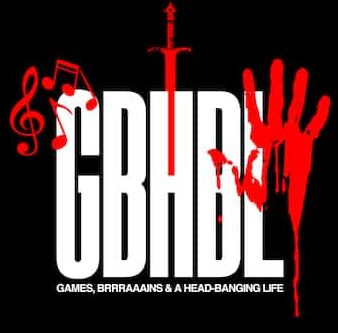What Rock Albums Left a Mark in the ’70s?
Rock music, both as a genre and a cultural movement, split and mutated into sub-genres, including punk, folk rock, heavy metal, and more, in the 1970s.
A change from psychedelic and jam rock toward rougher, louder, and grittier sounds was signaled by the deaths of Jimi Hendrix and Janis Joplin and, simultaneously, the rise of disco and the disbandment of the Beatles at the start of the 1970s.
Whether it was the quietly ground-breaking dulcimer strums of Joni Mitchell’s iconic “Blue” or the deafening roar of Black Sabbath’s stadium tours, the music of the 1970s had power thanks to global and national violence, a rebellious youth movement, and the legacy of 1960s pop and proto-punk.
So if you’re looking into ’70s rock to listen to while you’re enjoying playing online at Red Stag Casino and don’t know where to begin, here are four of the best rock albums from this era.
4. Black Sabbath’s “Black Sabbath”
As the 1970s began, the term “metal” was still in its infancy. Of course, some bands leaned toward the harder end of the spectrum, from The Doors’ hallucinogenic sounds to the powerful Jimi Hendrix tunes.
If there is a defining record that gave rise to the genre of metal, it would have to be Black Sabbath’s self-titled debut. From the first notes of the album’s title track, it was clear that this would be a harder record than anything being produced by The Stones or The Who at the same time.
Tony Iommi’s guitar is the driving force behind the album’s heaviness, whether he’s paying homage to the blues on “The Wizard” or producing a demonic version of Led Zeppelin on “Behind the Wall of Sleep,” all of which include Ozzy Osbourne’s instantly recognizable vocals.
The lyrics were also enough to cause some controversy, as they touched on more controversial topics (such as the occult in the album’s title track). Many worried parents of the day may have been alarmed, but this had nothing to do with turning kids into Satanists. This was the first step toward heavy metal’s eventual mainstream success.
3. Bruce Springsteen’s “Born to Run”
Bruce Springsteen required divine intervention to get his career started. The press had hailed him as the future of rock and roll, but his reputation as a Bob Dylan imitator was beginning to box him in, and he was working his E Street Band to exhaustion with little to show for it. But somewhere on the streets of Jersey, Springsteen discovered his true calling: singing about the tough characters he encountered on a daily basis.
Although Born to Run isn’t necessarily a thematic album, the songs were all inspired by Springsteen’s desire to leave his hometown and explore the world.
From the greaser who gets on the wrong side of the Mob in “Meeting Across the River” to the struggling couple in “Thunder Road,” The Boss tells the listener of people in dire straits throughout every track here. The odds are stacked against these guys, but they want to go out fighting.
Springsteen crafts a heartland rock fantasy on this album, complete with references to youths across the state line who “flash guitars like switchblades” and dream of making it big. Some of these tales may leave you feeling down, but with music like this, it’s not hard to imagine a way out of Nowheresville.
2. Led Zeppelin’s “Led Zeppelin”
After 1968, Led Zeppelin became more popular than The Beatles. The band formed from the ashes of the Yardbirds, and Jimmy Page’s riffs on songs like “Heartbreaker” and “Whole Lotta Love” gave an early preview of the ’70s sound. By the time they released their fourth album, they had taken the blues to a whole new direction.
Although blues shuffles serve as the foundation for songs like “Black Dog” and “When the Levee Breaks,” the album has a much different atmosphere thanks to Page’s flipped riffs and Robert Plant’s full embrace of his “Golden God” character.
You can hear a little bit of everything that made Led Zeppelin great, from the raucous energy of “Rock and Roll” to the more intimate side of their acoustic performance on “Going to California” across the course of this album.
‘Stairway to Heaven’ is an eight-minute behemoth that takes listeners on a journey anytime it comes on, culminating in one of the greatest solos in rock and roll history.
Zeppelin’s popularity grew as the decade progressed, but this point marked the culmination of their sound.
1. Pink Floyd’s “The Dark Side of the Moon”
Pink Floyd’s “The Dark Side of the Moon” has sold over 45 million copies and has spent about 18 years on the Billboard 200s. Their evolution to serious rock band from jam band is fully realized on this album, which deals with weighty topics like money, mortality, and the passage of time.
It also marked Roger Waters’ debut as the band’s only credited lyricist, a role he would play for the following decade, setting the tone for the group’s music and career, heavy music, glam rock, and folk music. It was also an age that gained its footing musically and politically in reaction to the hopeful and LSD-infused ’60s, becoming a distinct movement in its own right.
Final thoughts
Whether overt or subtle, the music of the 1970s was political, as music often is during periods of conflict, conservative opposition, and shifting gender and sex norms.




